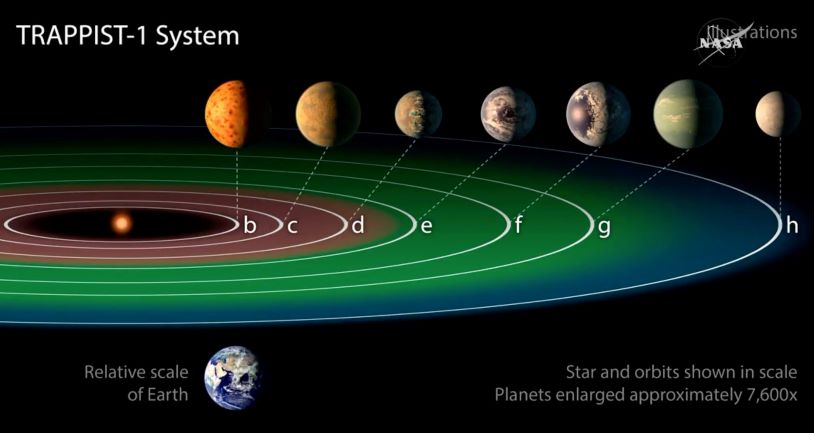Astronomers pioneer a new way to detect alien radio signals
A new technique may soon allow scientists to detect radio communications from alien civilizations – if they exist – while they interact with their spacecraft, according to a study in The Astronomical Journal.
American researchers tested their method on TRAPPIST-1, a star system 41 light-years away with seven rocky, Earth-sized planets, three of which orbit in the habitable zone. By tuning their instruments to detect smaller, narrowband radio signals—similar to those we use for spacecraft communication—they successfully demonstrated the approach, though they found no signs of extraterrestrial life.

The team utilized the Allan Telescope Array, observing TRAPPIST-1 for 28 hours. They focused on "planet-planet occultations," where one planet passes in front of another from Earth's perspective, creating opportunities to catch faint "spillover" signals sent between planets.
This yielded around 2,200 candidate signals during seven predicted occultations, none of which though indicated alien origins.
More to read:
Red dwarfs are dangerous hosts to exoplanets
Lead author Nick Tusay of Pennsylvania State University explained in a statement that these narrowband signals, while energy-efficient, are hard to detect at great distances. Improved equipment like the upcoming Square Kilometer Array could enhance sensitivity and potentially reveal such communications elsewhere.
Though no alien technosignatures were found, the method's success in identifying promising signals proves its viability for future extraterrestrial hunts across other stellar systems, the authors noted.
More to read:
Exoplanet K2-18b may harbor life
The study is a collaborative work by scientists from the Department of Astronomy & Astrophysics of Pennsylvania State University; the Center for Exoplanets and Habitable Worlds; the Penn State Extraterrestrial Intelligence Center; SETI Institute; the Department of Earth & Planetary Sciences of University of California, Riverside; and the Department of Astronomy at University of California, Berkeley.
***
NewsCafe relies in its reporting on research papers that need to be cracked down to average understanding. Some even need to be paid for. Help us pay for science reports to get more interesting stories. Use PayPal: office[at]rudeana.com or paypal.me/newscafeeu.





![[video] Google unveils groundbreaking quantum chip Willow](/news_img/2024/12/17/news0_mediu.jpg)

